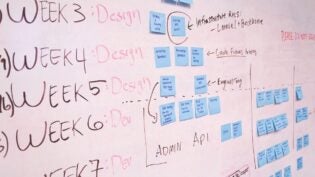
Entrepreneurs come up with lots of ideas. It might be lots of ideas for different businesses. Or they might be lots of ideas for things to try inside one business. But an interesting truth about these ideas is that it is very rare—if not impossible—for an idea that ends up in exactly the same place where it started.
Whether an idea ends up working out or not—and many of our ideas don’t work, no matter how brilliant we may think they are—it will change over time. Peter Sims’ book “Little Bets: How Breakthrough Ideas Emerge from Small Discoveries” is all about how to handle the flood of ideas.
As Sims puts it, there are two kinds of entrepreneurs in the world. First off, you have the conceptual entrepreneurs. These are your savants who come up with an idea fully formed, and it’s brilliant and immediately successful. These are your Mozarts, the once-in-a-lifetime talent who can see from beginning to end before starting.
The other 99.9 percent of us, however, are experimental innovators. Success doesn’t come from a grand vision, but from trial-and-error, from iterating with each idea to figure out what works, what doesn’t, and what might be better to try the next time. We get an idea, then we try it and see what happens. Then evaluate the results, and make changes. Rinse, and repeat. It’s a never-ending process, because even when we do find something that works, we have to keep on reinventing ourselves or risk getting passed by someone else.
It’s all about using “little bets” and seeing how the market responds.
The key to this approach is having the right attitude toward failure. You can’t be afraid of losing, but rather you have to see failure as a learning opportunity. Fail quickly to learn fast—it’s not a natural mindset, in a culture where we are rarely rewarded for failure! But the faster you fail, the better, because you get feedback from customers and opportunities to reinvent and improve, to create a product or service that works.
To succeed, keep making lots of little bets. Try new things. Be curious, and take risks. You never know what might work—and what might give you the inspiration you need.
Published: September 24, 2013
2777 Views
2777 Views











